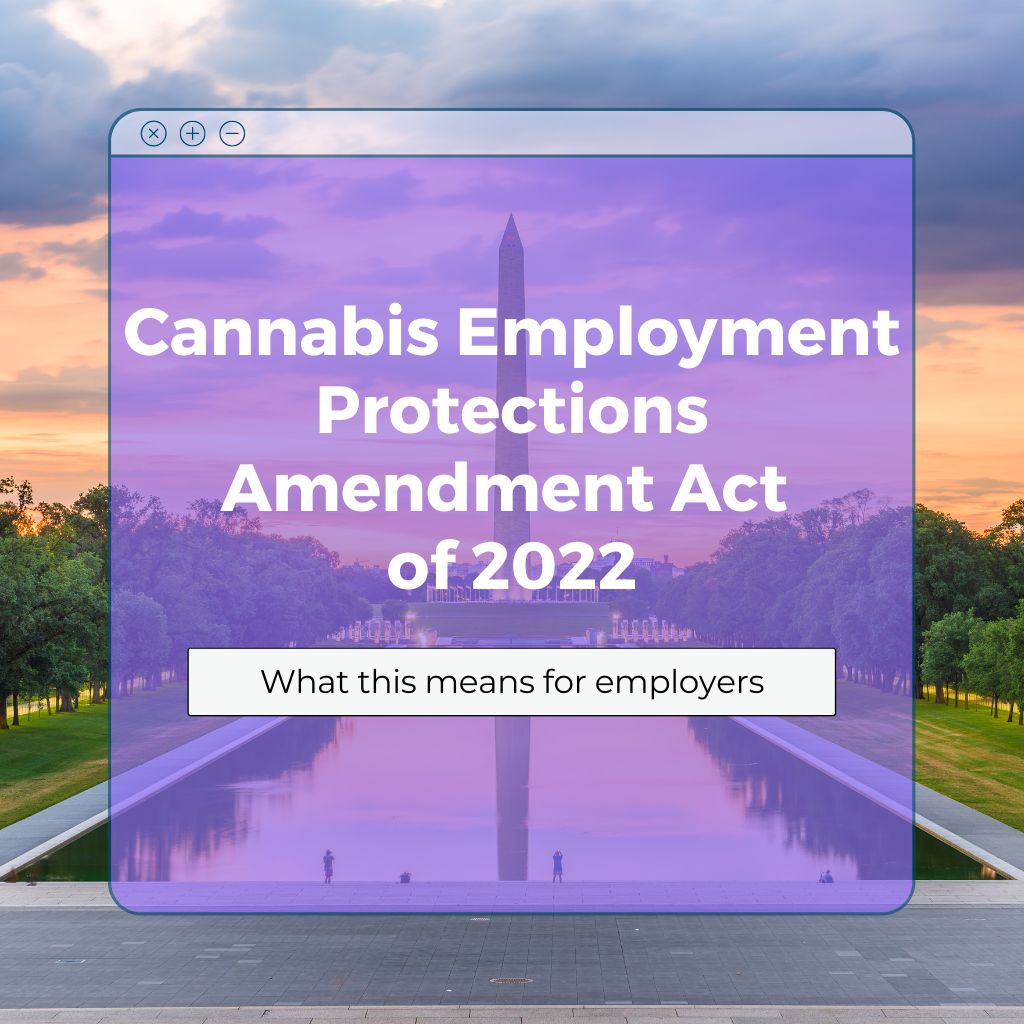July 14, 2023
Washington, D.C. passed the Cannabis Employment Protections Amendment Act of 2022 last year. However, it would take effect only on July 13, 2023, or when included in an approved budget. Once it joins a fiscal budget, it would prohibit Washington D.C. employers from taking adverse action against cannabis use. The law includes testing employees for cannabis use and medical marijuana patients.
Employers cannot “fire, fail to hire, or take other personnel actions against an individual for the use of cannabis, participation in the District’s or another state’s medical cannabis program, or failure to pass an employer-required or requested cannabis drug test.” However, the law provided exceptions under specific conditions. Examples include safety-sensitive positions and employers that must comply with federal law, a federal contract, or a federal funding agreement.
Exceptions to the Act
In addition, employers can maintain a “reasonable drug-free workplace.” They are not required to “permit or accommodate the use, consumption, possession, storage, delivery, transfer, display, transportation, sale, purchase, or growing of cannabis at the employee’s place of employment while performing work for the employer, or during the employee’s hours of work” unless required by law.”
Employers can conduct drug tests with reasonable suspicion of drug use, after an accident, and for safety-sensitive positions. Safety-sensitive positions include jobs designated by the employer that might reasonably result in “actual, immediate, and serious bodily injury or loss of life to self or others” if someone worked under the influence of alcohol or drugs.
The Act requires employers to notify their employees of the rights this law provides within 60 days of its effective date. Employees have one year to file an administrative complaint if they suspect the employer failed to comply with Section 102. This section describes employee protections. Concerned employees may file a complaint with the Office of Human Rights.
Filing Complaints
If substantiated, the complaint could lead to several consequences for the employer. These consequences include civil penalties, the payment of lost wages to the complainant, mandatory training, and other forms of relief. In addition, it would undo the employer’s adverse action, restoring the complainant to their position if the employer had not violated Section 102.
Employees that claim their employer violated Section 102 may bring a private cause of action within a year of the violation under the following circumstances:
- The employee is not a medical cannabis program patient and deemed to have exhausted administrative remedies as provided in section 105(b);
- If the employee is a medical cannabis program patient, the employee:
- Does not have an administrative complaint alleging the same unlawful acts pending before the Office of Human Rights; or
- Has not received a final determination from the Office of Human Rights on an administrative complaint alleging the same unlawful acts.
The year the employee has to bring the private cause of action counts the time spent pending before the Office of Human Rights. The Attorney General can also receive complaints and conduct investigations to enforce this Act. However, the Act limits the complaints and investigations to non-government employers.
Employers should prepare to comply with this law by changing their employment policies as necessary. The best way to ensure compliance with any laws related to background screening is to partner with a background check company you can trust.
